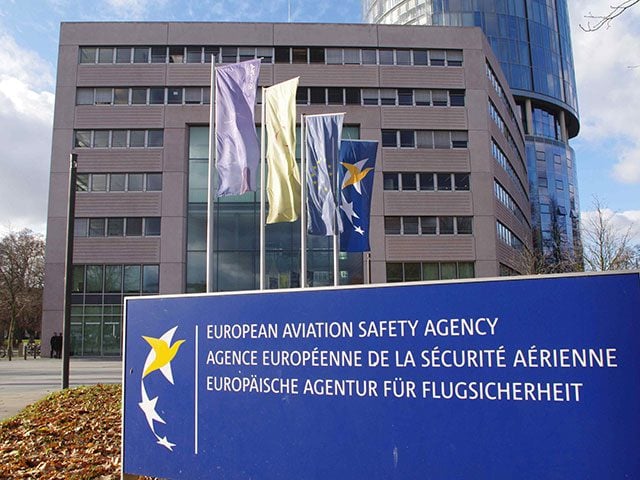
EASA Headquarters
EASA, the European aviation authority, suspended EASA certification of current Russian aircraft and will no longer accept applications to certify new Russian aircraft. These new developments are in addition to sanctions following the invasion of Ukraine that Russia airlines can no longer purchase or lease western aircraft or utilize maintenance services from western countries. The EASA certification includes the type certificates for aircraft, certification of individual parts, certification of simulators, and operating authorities for manufacturing and MRO organizations.
This directly impacts the two current Russian commercial aircraft programs, the forthcoming Irkut MC-21, which from today will not be offered EASA certification, and the existing Sukhoi Superjet 100, for which certification has been dropped. That means no European carrier can purchase or operate those types of aircraft. There are also a series of five other aircraft impacted with the same de-certification, including the Tupolev Tu-204-120CE freighter aircraft and Beriev Be-220 firefighting aircraft.
EASA has also withdrawn production organization approvals from Avianintercom, Engineering and Production Company Aerostyling, S7 Engineering, UEC Saturn, and Vamina Aviaprestige. EASA has also withdrawn maintenance organization approvals from Russian airlines, including Aeroflot, Aurora, Rossiya Airlines, S7 Engineering, Volga-Dnepr Technics, and 34 others. This means that those airlines and production organizations can neither make parts for nor legally maintain EASA certified aircraft.
Ukrainian-built Antonov An-124 is excluded
Aircraft that are not EASA certified cannot be flown by any European airline. These aircraft, if flown by non-Russian airlines, could potentially be banned from European airspace as well. Aircraft from Antonov, based in Ukraine, such as the An-124 jumbo cargo aircraft, are not subject to de-certification, but Russian operators of those aircraft, including Volga-Dnepr, a cargo carrier, have already been banned from European airspace.
While the Russian aerospace industry does not currently have robust foreign sales, the MC-21 was designed with a number of western components and engines, as well as a domestic Russian version, for just that purpose. The version intended for western markets will now find those markets very much closed until further notice. The potential for aircraft exports from Russia, impacted severely by sanctions, has just been handed another impediment that should make it next to impossible to effectively operate Russian-built aircraft in Europe or other western countries.
With no US customers, Russia chose to use EASA certification as its western authority rather than the FAA, hoping to utilize the reciprocity agreements that EASA has globally to satisfy the requirements of other countries. The rug has now been pulled out from under United Aircraft and the Russian aviation industry by European regulators. The sanctions have just become even tougher.
Views: 29




